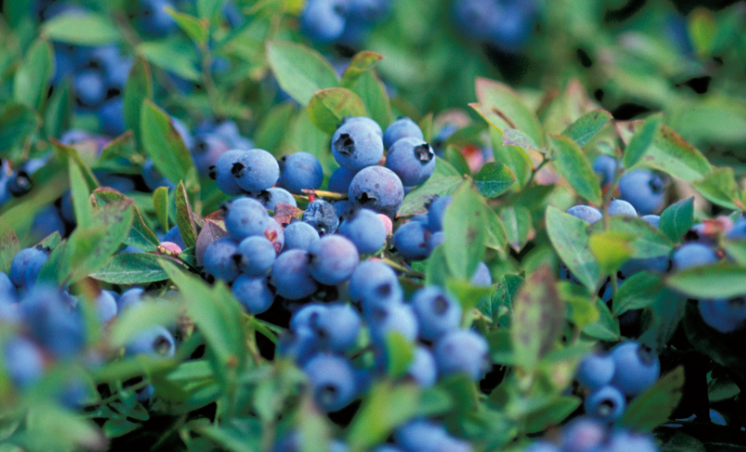Feel & Look Younger This Year
Resolve to Step Up Your Anti-aging Efforts in 2013

If 2013 is your year to look better, feel younger, and be healthier, overhauling your diet might be in order. A healthy diet is the closest thing we have to a ticket to longevity – not to mention a better life right now. We simply are what we eat, and today’s scientific research supports that our diet holds sway over our ability to prevent age-related issues, including illness, disease, and overall wellness.
Is health and longevity on your plate this year? It should be. Now is the perfect time to reset the clock on your health. Resolve to make your diet work for you, not against you, in the coming year.
Is Your Diet Aging You?
It could be. The health of your brain, the vitality of your skin, and your chances of experiencing chronic illness are directly influenced by what you put on your plate. When your intake of sugars, fats, and processed foods begins to overtake your intake fruits and vegetables, it means your diet has deteriorated. As a result, you may be putting yourself at risk for what you most want to avoid as you age.
Without a healthy brain, let’s face it, the rest just doesn’t matter. But having a diet of prevention now can help keep your brain healthy and nimble later. Eating for brain health is part of a fundamental strategy to help reverse the aging process. Here’s why: a diet rich in anthocyanin-rich foods has been shown to reverse memory loss and slow cognitive decline. In fact, new research into cognitive health such as the Nurse’s Study shows that eating anthocyanin-rich foods can affect intellectual performance, memory, and brain performance related to aging. And, dietary antioxidants have been shown to protect against inflammation, and inflammation is thought to be a leading factor in brain aging and Alzheimer’s disease.
Your Diet Affects Your Skin
What we show the world on the outside reflects our inside – that couldn’t be truer when it comes to our skin. Our cells are engaged in a battle against free radicals everyday. Oxidative stress is associated with cancer, heart disease and other diseases of aging. It’s also evident on our outermost layers of cells – free radical damage is the reason the sun and our environment leads to wrinkles and a dull complexion. High antioxidant foods help us in the fight against free radicals and act as anti-aging agents. Dietary antioxidants such as anthocyanins, flavonoids found in the skin pigments of some foods like the deeply-colored wild blueberry, have the ability to neutralize free radicals and help prevent cell damage, and that includes our aging epidermis, an external hallmark of our maturity.
Your Diet Affects Your Risk of Chronic Illness
 Can we avoid the chronic illness that plagues us as we age? Some nutrition experts believe we can, and scientists continue to make efforts to isolate the compounds that act on our bodies to prevent aging and disease. What we already know, however, is that natural compounds found in fruits and vegetables can help us prevent chronic illness and promote healthy aging. Aging is often characterized by diseases that are the result of low grade chronic inflammation that occurs inside the body and causes heart disease, cancer, diabetes, and even arthritis. Eating antioxidant-rich foods daily has been shown to minimize oxidative strain inside the body, which is connected to chronic illnesses and aging.
Can we avoid the chronic illness that plagues us as we age? Some nutrition experts believe we can, and scientists continue to make efforts to isolate the compounds that act on our bodies to prevent aging and disease. What we already know, however, is that natural compounds found in fruits and vegetables can help us prevent chronic illness and promote healthy aging. Aging is often characterized by diseases that are the result of low grade chronic inflammation that occurs inside the body and causes heart disease, cancer, diabetes, and even arthritis. Eating antioxidant-rich foods daily has been shown to minimize oxidative strain inside the body, which is connected to chronic illnesses and aging.
Resolve to Age Better in 2013
Here are three simple steps you can take to make 2013 your best year yet in health and anti-aging efforts.
1. Get Your 5 Cups
Reaching (or even closing in on) your recommended amounts of fruits and vegetables will get you closer to your goal of healthy aging. This year, resolve to start eating a diet that combats age-related health risks by eating at a variety of colorful fruits and veggies and filling half your plate with them at every meal. According to the USDA dietary guidelines, that’s 2 cups of fruit and 3 cups of vegetables, on average, for a total of 5 cups every day. By getting your recommended cups per day, you’ll also get the added benefit of edging out less-than-healthy foods that are aging you too quickly. (That’s two resolutions for the price on one!)
2. Load Up on Berries
Look to berries if you are aiming to make the most of your anti-aging efforts. Why berries? Berries are notorious for their powerful antioxidant benefits thanks to phytonutrients, which aid the process of neutralizing free radicals and are found in high concentrations in berries’ colorful skin. Berries have also been shown to have “synergy” with other foods and to help ameliorate the adverse effects of a meal that occurs with absorption. Wild blueberries in particular top the list of high-phyto berries. (They are also high in fiber and contribute to glycemic control.) If slowing the aging process is your resolution, “bathe your meal in berries” says superfood guru Steven Pratt – whether it’s breakfast, salads, entrees or desserts – you’ll be arming yourself against inflammation and the diseases of aging.
3. Be Antioxidant Savvy
 In the quest to age well, make sure you know what foods provide the most powerful source of antioxidants. Deep pigments and colorful skin is often nature’s tip-off that a food has beneficial compounds. By knowing the amount of antioxidants in certain foods, you can get the biggest antioxidant bang from your dietary buck.
In the quest to age well, make sure you know what foods provide the most powerful source of antioxidants. Deep pigments and colorful skin is often nature’s tip-off that a food has beneficial compounds. By knowing the amount of antioxidants in certain foods, you can get the biggest antioxidant bang from your dietary buck.
You can determine the antioxidant capacity of different fruits and vegetables by knowing their ORAC score. Find a list on the United States Department of Agriculture or by checking OracValues.com, and use your knowledge to start buying foods that promote disease prevention. Shop the produce section or the freezer section for fruits and vegetables – that’s where you’ll find the healthiest foods. And those are the ones you’ll want on your plate every day. Then, even while the calendar keeps moving forward, you’ll know you’re making efforts to turn back the clock.
Healthy Aging Research
Scientists around the world are studying the ways in which natural compounds found in the foods we eat can help combat disease and promote health aging. For an in-depth look at hundreds of health-related blueberry studies, visit the Wild Blueberry Association Research Library™.


